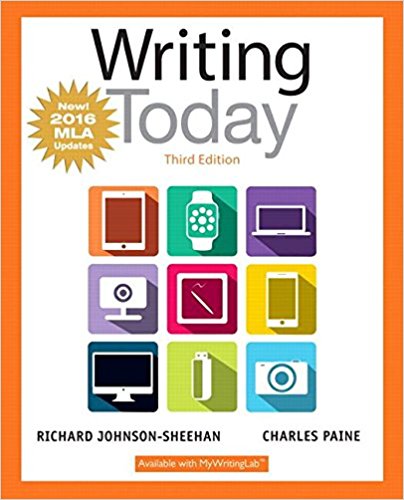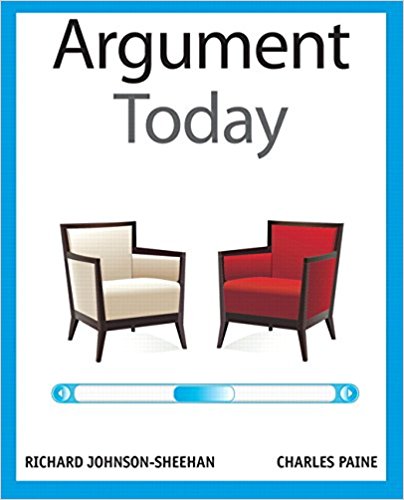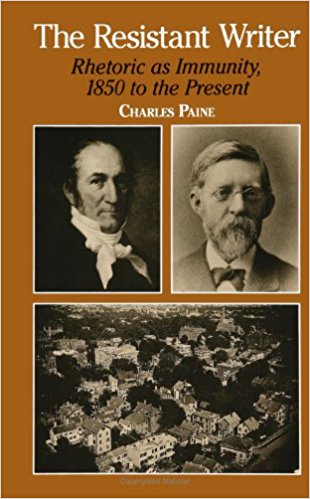Charles Paine
Charles Paine is a Professor of English at the University of New Mexico, where he teaches undergraduate courses in first-year, intermediate, and professional writing as well as graduate courses in writing pedagogy, the history of rhetoric and composition, and other areas. At UNM, he directed the Rhetoric and Writing Program and the First-Year Writing Program. He is an active member of the Council of Writing Program Administrators and currently serves on its Executive Board. He co-founded and coordinates the Consortium for the Study of Writing in College, a joint effort of the National Survey of Student Engagement and the Council of Writing Program Administrators. The Consortium conducts general research into the ways that undergraduate writing can lead to enhanced learning, engagement, and other gains related to student success.
Writing Today
 | "Writing Today 3rd Edition introduces individuals to the conventions of writing memoirs, profiles, literary analyses, arguments, research papers, and more. Each chapter features a step-by-step process for composing within a given genre, as well as exemplary professional readings to promote rhetorical knowledge and critical analysis. The 42 short chapters, the chunked writing style, and visual instruction work to ensure that individuals will transfer the skills and strategies practiced to their lives and careers. From its graphic 'Quick Start Guides' to its 'Write This' prompts, Writing Today challenges individuals to extend the boundaries of their writing abilities as they practice composing for the real world." Buy this bookAmazon.com | University Bookstore |
Argument Today
 | Buy this bookAmazon.com | University Bookstore |
The Resistant Writer: Rhetoric As Immunity, 1850 to the Present
 | "The Resistant Writer integrates two lively sub-fields in rhetoric and composition: nineteenth-century composition history and contemporary issues about teaching cultural studies in composition. Examining the broad cultural anxieties that nineteenth-century intellectuals faced reveals that training in composition was envisioned as more than the means for producing competent writers. The training also reacted to and tried to ameliorate the nineteenth-century 'crisis in public discourse,' this one brought about not by television, commodity capitalism, or the World Wide Web, but by the then-dominant medium of public discussion, the newspaper. Paine carefully reveals that today's writing teachers are not the first to desire that the composition classroom have social import beyond the academy. These thoughtful new insights from composition's origins form an intriguing critique of contemporary "cultural studies and composition" theories of student transformation." Buy this bookAmazon.com | University Bookstore |






